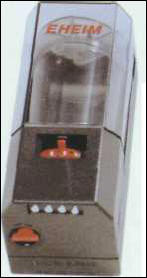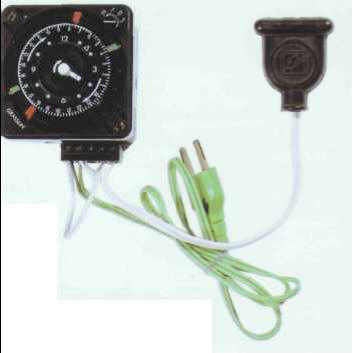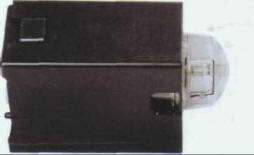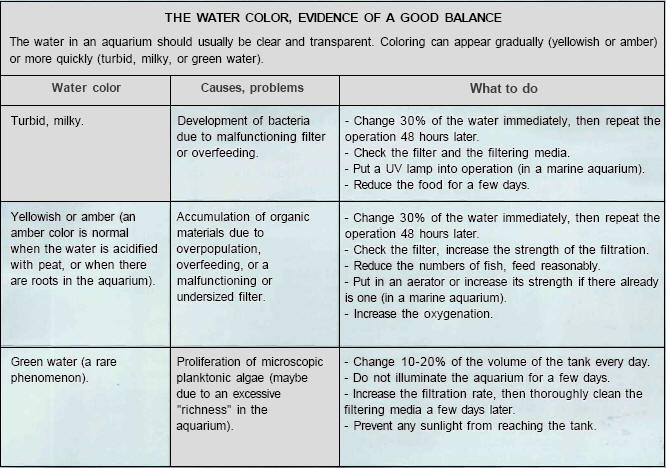WHEN THE AQUARIST IS AWAY
What do you do if you are away for more than a day? What will happen to the aquarium?
This depends on the length of the absence, and certain precautions must be taken,
especially for vacations.
Short absences do not represent a problem. Freshwater fish can go without food
for two weeks, or even three in the most robust species, but marine fish, on the
other hand, cannot endure fasting for more than a week. This only applies to adults,
as the fry must always be fed on a regular basis.
A long absence
There are two options for a long absence:
- the first consists of using an automatic food distributor controlled by
a timer, which can only be used with dry food;
- the second is finding a friend kind enough to feed your fish for you - preferably
another aquarist who will monitor the feeding and the aquarium just as you would.
If your friend is not a hobbyist, then you must prepare daily doses of dry food
and leave him or her some instructions, in order to avoid any overfeeding. (However,
this friend will not be obliged to drop by your home every day, one or two visits
a week being generally sufficient). Plants can go without lighting for one week,
but after any longer period they turn yellow and gradually wither. It is therefore
advisable to install an automatic timer that will switch the aquarium lighting
on and off at specific times. This means that there is no need to let the sunlight
into your home and so you can close your shutters. This is particularly relevant
in summer, as it avoids any excessive increase in the temperature, which will
have repercussions on the aquarium.

The use of batteries makes some food distributors automatic
and very practical.
Vacations

The lighting can be controlled automatically with a small
electric timer.
Before leaving:
- check the pH, nitrites, temperature, hardness, or density;
- check the equipment; - clean the filtering media and panes; do the siphoning;
- increase the frequency (but not the quantity) of water changes;
- put the vegetation in order by trimming the plants and taking cuttings.
You can also add plants with fine leaves for herbivorous fish, if they are not
going to receive any other food;
- slightly overfeed the fish for a few days before your departure;
- switch on the automatic lighting system and, if you are using it, an automatic
food distributor;
- make a final check the night or morning before you leave.

Automatic food distributor with a mains connection.
When you get back:
- switch off the automatic devices and generally put the tank in order (siphoning,
panes, filtering media, vegetation);
- change 5-10% of the water every day for a few days;
- give the fish smaller portions of food than normal - if possible including
live prey or fresh food - and gradually increase these amounts until they reach
the usual level.

|